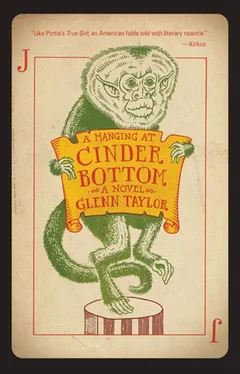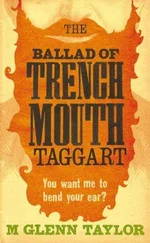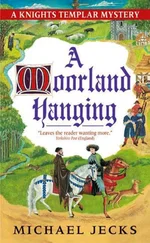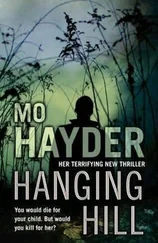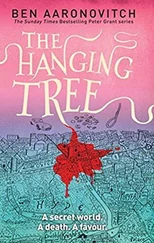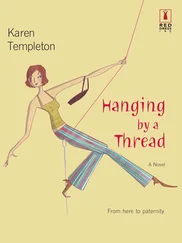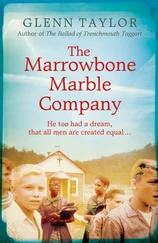On his father’s workbench, Abe found a fat stub of pencil and a daily desk calendar that hadn’t been used in a month. He tore a fistful of sheets from the high rusted arches. He wrote down what she told him. He wrote down every word.
Trent had maintained his wealth, but his theater had not prospered as he’d planned. After Abe left town, Trent had ignored Nina Gyro and her broken coccyx, and when a preacher found her hung early morning from a low Methodist joist, Trent wouldn’t pay to have her buried. He’d tried to bring in more national acts for the main stage, but news of the cut wires traveled through the circuit and stuck, and no prominent magician would come. For the past two years, he’d been dead set on bringing in Max Mercurio — a magician who’d earned the nickname the Sublime One — and his Beautiful Beatrice. While in New Orleans on business, Trent had seen a handbill with her picture, and on that alone he vowed that Beatrice would come to the Alhambra. At seventy-three, he still thought himself capable of bedding young women, and he’d even tried once to sweet-talk Goldie. She’d walked away telling him to go and find a knothole, but she’d kept her head turned and her eye on him, for above all, she explained to Abe, Henry Trent was ever more volatile. He’d just as soon bear-hug a man as brain him with a rifle butt. None could know his mood from day to day. He’d collected regular from the Baaches since Abe left and blackballed any who darkened their saloon door. He told all company men to board someplace other than Hood House, and he aimed to buy its land from Sallie’s father, Old Man Hood.
Rufus Beavers stayed mildly drunk most hours and took bribes to let men walk free. He played regular at the Oak Slab and still held sway with the railroad, overseeing the clearing and carving of bottomland where a new switchout and tipple would sit. His brother Harold brought back on his frequent home visits a considerable sum of greenbacks too, putting his into the purchase of hill land west of town, just beyond Hood House property, where he clear-cut and stair-stepped the ridge. Along with his brother and Henry Trent, he had his sights on building proper Keystone environs for proper citizens. He’d come home mid-March and slept with fourteen different whores before he left, less than a week before Abe’s arrival. He took Rufus with him. Extended vacation is what folks called it. A common pleas judge from up at Welch would cover any trial work the judge might miss.
Faro Fred Reed was still president of the Union Political and Social Club. He was loyal to Trent and aimed to be made a councilman in the interim election by splitting the black vote and unseating Reverend Whitt. Fred’s boy Taffy aided him in this endeavor, getting in the ear of every black miner in the Bottom, asking them, “You want a colored man favors whiskey or one that wants to take it away? Can’t have both.” Taffy was a police officer and right-hand man to Chief Rutherford.
Rutherford was as paltry and false-hearted as he’d ever been. For six months in 1903, he’d searched in vain for Floyd Staples, and when he gave it up and came home, he made Rebecca Staples his woman, paying for the hospital birth of her child at Welch. It was another boy, born eight months to the day after Floyd’s disappearance, and she’d named him Robert Staples. Rutherford hired a nanny for the boy and threw Rebecca an allowance as long as she kept her opium habit hidden and held his little hand in public.
Rebecca’s older boy, Little Donnie Staples, had become the finest cardplayer since the Keystone Kid. The Oak Slab game had endured without stoppage, even on the night of the red-headed boy’s murder, and now its principal player — the one all others came to try and beat — was Little Donnie Staples. He was seventeen years old.
“The young ones might be gotten to,” Goldie told Abe. “Taffy Reed will prove difficult. He shares his daddy’s allegiance to whoever has the most.” She worried that Taffy carried feelings for her still, that he’d not take to Abe being back. “But Little Donnie could be useful,” she said. “He’s got the eye.”
All of this she told him that night in intervals between which they affixed at the middle in bouts of flamboyant sexual congress unavailable to the meek-hearted masses. They stayed in bed past noon the next day.
While Goldie moved in and out of sleep beside him, Abe looked down at what he’d written on the brittle squares of calendar paper. Beautiful Beatrice . She was a good place to start because she was a cinch. Abe had big-conned many a man like Henry Trent, and most times the play began with a weakness, usually a woman or the sight of ample paper money. Or both. He shut his eyes and saw himself walking straight into Trent’s office, laying a stack on the wide desk, saying what he needed to say in order to make the play. Convincers would have to come early and often. Trent was no fool. He’d smell any whiff of shit and he’d see any angle too crooked. Soft spots he’d push. Mistakes he’d kill over.
Abe watched Goldie’s eyes behind their lids. He chewed on the stub of pencil and reread his notes. Beside Little Donnie Staples he wrote Roper . Next to this: Inside Men — Tony Thumbs, Jim Fort . A fast scratch sounded from above and he looked up at the ceiling. A squirrel skittered invisible across joists and beams. Abe followed its sound until it stopped, looked down at his lap again, and put what was left of the pencil against the page. Only a small triangle of white remained at the bottom corner. Daddy’s saloon — he wrote. Big store .
Sam came from town and reported that no one had caught wind of Abe’s arrival, so Abe and Goldie ate and drank and talked and slept and planned and set to further coital undertakings for two straight days. His knob went raw. They agreed, without verbalizing it as such, to never speak on any others they may have slept with. She showed him how she’d kept sharp her card-throwing skills, scaling a fresh deck and hitting every target she called out. Windowpane, picture frame, doorknob, cockroach.
He built a midnight fire between the houses and stood by it naked and made a fireball by spewing a blast of corn liquor. They laughed as they had not laughed in ten years.
Together, they read once more what he’d written on the calendar pages, and then he tossed every one into the fire.
No premonitions visited Goldie’s slumber. No terrified visions sat her up in bed.
They hunkered together under a blue-and-white quilt stitched by Sallie’s grandmother. The cold front came slow from the west, but it came nonetheless.
Before they slept, Abe put his hand to her face and his breath condensed white when he spoke her name. “I love you,” he told her. “And I’ll not ever love another again.”
APRIL FOOLS’ HAS COME AND GONE
April 25, 1910
He’d walked the long way back to town in the darkest part of morning. He carried no lantern, for Sam had told of lawless night-men who made sport of shooting out fire from great distance. By the burn in his ears, he could tell that it was below thirty-five degrees. He walked from the woods to the creek bank and looked up at the chalk-white moon. It came free of the clouds, full as he’d ever seen. And though he thought his eyes deceived him at first, he held his stare and watched them descend — snowflakes, few and fitful. He reckoned summer had not come two months early after all, reckoned a Bibled man would tell him that snowflakes in April marked the coming apocalypse. He stuck out his tongue to catch one and in his mind was the word cosmoplast .
In his little room above the saloon, he took a powder for the ache in his head. He touched his fingers to the twin knots, still tender from the blows. When he touched them, a soft roar sounded way down deep in his ear canals, a deep-tunneled call, like a blast furnace. He touched and listened, touched and listened. He wondered at his own sanity then, wondered if he might follow the course of Jake, of the man in the flophouse doorway.
Читать дальше
Конец ознакомительного отрывка
Купить книгу
